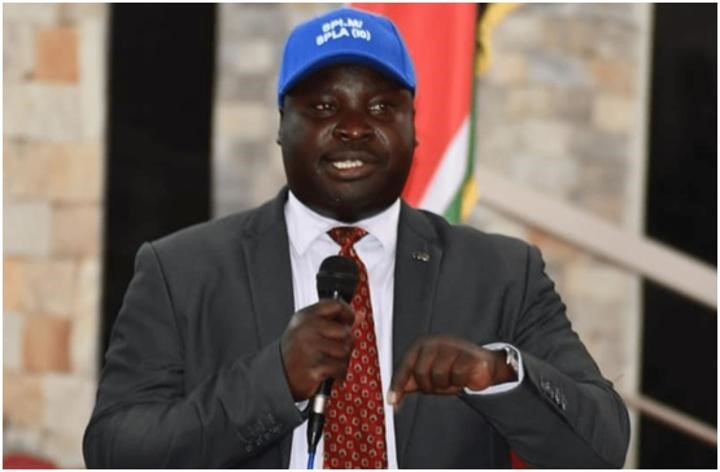
President Salva Kiir’s removal of top SPLM-IO leaders from the transitional legislature has triggered a storm of criticism from the opposition and civil society, with warnings that the move could weaken the 2018 Revitalized Peace Agreement instead of strengthening it.
Among those removed is First Deputy Speaker of the National Legislative Assembly, Oyet Nathaniel, the most senior SPLM-IO figure loyal to detained First Vice President Dr. Riek Machar.
Also dismissed were Council of States Speaker Deng Deng Akon, SPLM-IO chief whip Faruk Gatkuoth, and party secretary general Regina Kaba.
In their place, Kiir appointed members loyal to the SPLM-IO faction of Stephen Par Kuol, deepening internal splits within the opposition.
For SPLM-IO, the move is nothing short of a political ambush. Isaac K. Gang, the group’s representative to the United States, called it “the final nail in the coffin” of the peace deal, accusing the SPLM-IG of acting unilaterally and without consultation.
He warned that if such actions continue unchecked, the SPLM-IO could declare the agreement dead.
Oyet Nathaniel’s reaction was defiant and symbolic: “You will definitely hear from us! Nobody can defeat the power and resolve of the people. Aluta Continua! Victory is certain.”
The dismissals come at a delicate moment, coinciding with the African Union Peace and Security Council’s visit to encourage political dialogue and national reconciliation.
For civil society, the timing sends the wrong message.
Edmond Yakani, Executive Director of the Community Empowerment for Progress Organization (CEPO), described the decision as “particularly unfortunate,” saying it signals to the AU that South Sudan’s leaders are pursuing their own path to peace, one that appears to sideline inclusivity.
Yakani cautioned that while political disagreements are a sign of democratic maturity, using them to exclude rivals undermines institutions and risks pushing the country closer to renewed conflict.
“We appeal to leaders to refrain from actions that create conditions for renewed crisis,” he said.
The SPLM-IO’s fury and civil society’s concern stem from the same root fear: that the political purge is less about governance efficiency and more about consolidating power ahead of the transition’s endgame.
Removing opposition figures without consultation challenges the core principle of the peace deal, shared leadership.
This approach risks alienating moderate opposition leaders and empowering hardliners who may consider abandoning dialogue for confrontation.
It also erodes trust among citizens who have been told that peace and inclusivity are national priorities.
Pathways to prevent escalation
IGAD, the AU, and peace guarantors must urgently broker talks between SPLM-IG and SPLM-IO factions.
Both sides should reaffirm, in action and words, their adherence to inclusivity in governance.
Grassroots voices can pressure leaders to prioritize dialogue over unilateralism.
Opposition lawmakers abroad should be assured of safety to return and participate.
Whether this reshuffle strengthens governance or fractures the peace will depend on the political choices made in the coming weeks – choices that could define South Sudan’s stability for years.

